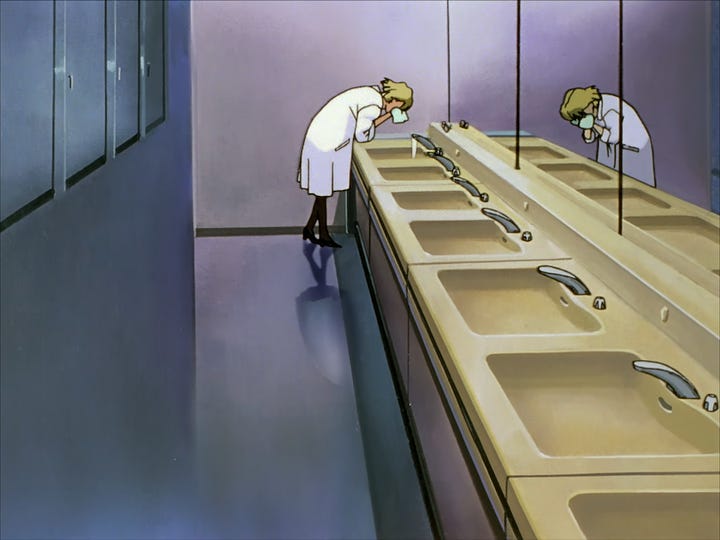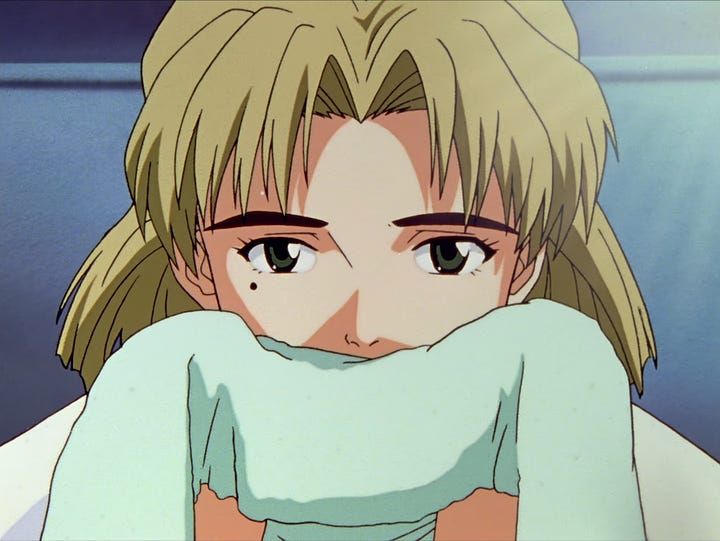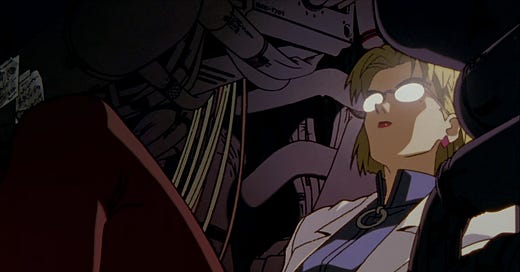that's not a zero or a negative
neon genesis evangelion (episode thirteen, "angel infiltration")
Ritsuko Akagi is a side character and she’s happy that way. She likes to slide in, collect her data, and slide out. Even though we first meet her in a swimsuit, she’s almost always buttoned-up and put together in the impersonal uniform of a professional woman: sensible heels, red lipstick, lab coat.1 Even her chain smoking is a professional sort of vice (maybe put more bluntly, a masculine vice). Nicotine is a way of staying alert and keeping your edge, not a way of cutting loose and dropping your inhibitions. Ritsuko doesn’t get sloppy.
There she is—the cool as a cucumber scientist. Ritsuko excludes herself from the narrative or, rather, she believes she can exclude herself and remain an eternal observer of data and facilitator of science. Impossible to imagine her doing something stupid, or losing control of herself, or behaving erratically.2


At the start of …
Keep reading with a 7-day free trial
Subscribe to Notebook to keep reading this post and get 7 days of free access to the full post archives.



